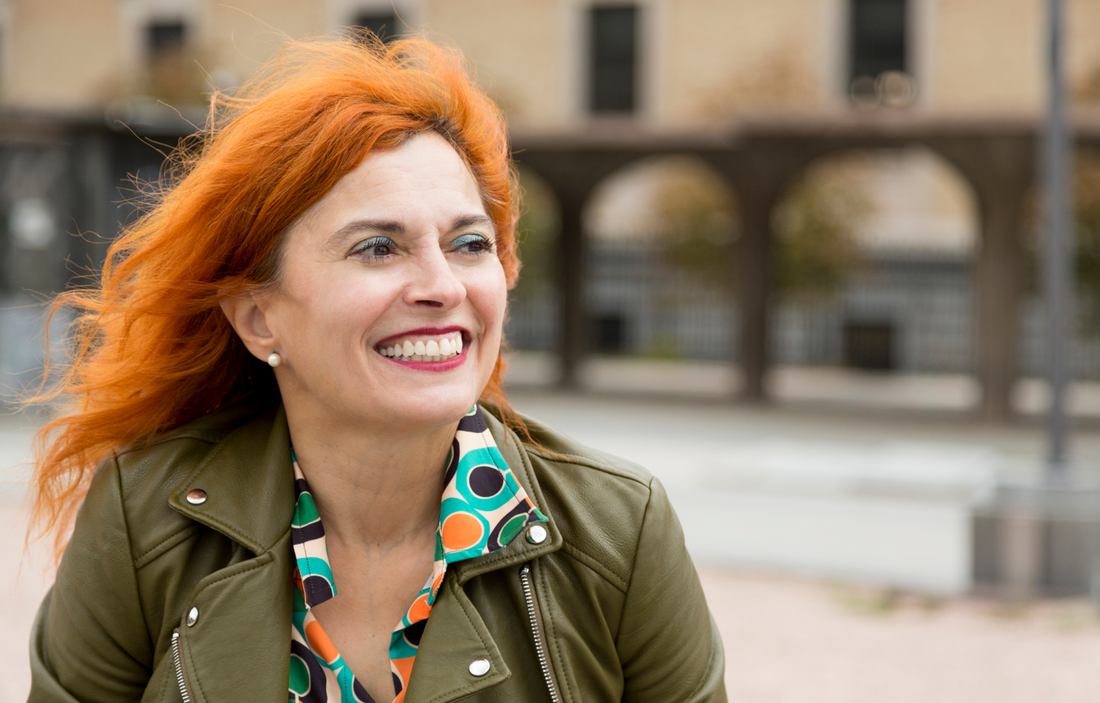For us women, strange symptoms often creep in gradually, ones we find hard to identify and that puzzle us. For me, for example, it started with mood swings, a violent and emotional up-and-down that sometimes astonished my husband and children (and myself, too). "Who is this woman?" we all probably thought... do you know that feeling?
Shortly after that, I also started struggling with insomnia, and without good sleep, I'm unbearable... which didn't exactly help my mood swings.
What did help, however, was an adapted diet, exercise, and self-care—which had to be a little different than in younger years—but more on that later.
If you're wondering, "Am I going through menopause?", I can't offer you a simple yes or no answer, because there's no simple diagnostic test. Rather, it's a number and combination of symptoms. It's like trying to diagnose a cold; there's no 'cold test,' but doctors look at your symptoms and the overall picture to make a diagnosis. The experience of menopause varies greatly for women—both in terms of the severity and severity of the symptoms. This blog aims to give you an overview: what exactly menopause is, what the different phases are, and how to recognize the symptoms.
Phases of menopause
Many women think that menopause is over once they stop having their periods. But that's far from the truth, and it's still a while before that happens. Menopause lasts an average of four to eight years and can bring with it many symptoms. It is divided into phases: perimenopause, menopause, and postmenopause.
Peri-menopause (menopause)
Perimenopause is also known to most women as menopause. The first symptoms can begin in the early to mid-40s, and for some women even as early as the mid-30s. The onset of perimenopause begins with mild hormonal changes. Often, women don't really notice these changes or blame their mood swings or sleep problems on stress or other factors.
When you're fully into menopause, it feels like chaos. The reason for this is your hormones, especially progesterone and estrogen. Your progesterone levels continue to decline, and estrogen often fluctuates wildly; at times, estrogen can even be relatively dominant (so much for estrogen declining and that's it!). The interplay of your hormones becomes increasingly out of whack.
It is important to understand that you can still have a fairly normal cycle (but this is not guaranteed) and you can still have symptoms.
Sleep disorders, mood swings, joint pain, and lack of energy are very common - and there may be a number of other symptoms.
menopause
Menopause is the period 12 months after your last period. So it's really just ONE day in your life.
Post-menopause
Post-menopause describes the time after menopause, when you've settled into your "new normal." You've left the period of hormonal chaos behind you (and hopefully the symptoms too) and learned to understand yourself and your body and how to support yourself optimally.
You ask: Am I going through menopause? Here's how to recognize the symptoms.
While there's no easy diagnostic test, your symptoms, combined with your age, can shed some light on your sleep. How's your sleep? Are you having trouble falling asleep, waking up constantly, or are your thoughts going in circles? Disturbed sleep is often the first sign. Do you wake up in the morning with aching joints, wondering if you've aged 10 years overnight? Do you sometimes go somewhere full of energy and then can't remember what you were doing there in the first place? Hello brain fog! Do you sometimes suddenly feel incredibly hot, as if you were standing in the middle of a desert? Say goodbye to those hot flashes quietly. Are you eating basically the same as before, but suddenly gaining weight, especially around your midsection? Is what used to be a good, healthy lifestyle suddenly no longer producing results? If these observations sound all too familiar to you, chances are you're going through menopause.
But remember that every woman's experience can be different, and there is no clear sequence as to which symptoms appear first.
Unfortunately, these aren't the only symptoms women experience during menopause. They also include headaches, anxiety, mood swings, dry skin, and loss of libido.
Conclusion: Menopause is a drastic change
So you see, menopause is a time of change.
See it as your opportunity to get to know your body better and do good things for it. The healthier and more balanced your body functions, the fewer symptoms you'll typically experience. While you can't avoid hormonal changes, you can cope much better when your systems are functioning optimally. No matter what stage of transition you're in, it's never too late to take care of yourself and your health. This way, you can reduce side effects and counteract potential chronic health problems like diabetes or osteoporosis.
To put it simply, a healthy lifestyle means regular and balanced exercise, a good and healthy diet and a good level of stress management and self-care.
A simple way to take care of yourself is to monitor your blood sugar levels. Your blood sugar tells you about lifestyle choices that work well for you and where there's room for improvement. For example, you can see which evening meal disrupts your sleep or which everyday factors lead to stress. By adjusting small things, you can achieve energy throughout the day and get rid of those annoying mood swings.
Hello Inside is a great tool that can help you discover your optimal, individual lifestyle and the necessary adjustments. Not only will you learn how your blood sugar reacts to your lifestyle, but you'll also receive the right strategies to help you optimize your blood sugar. A great tool for a healthier—and more balanced—menopause!
------------------------------------------------------------------------------------------
About Barbara:
Barbara Birke is a sports scientist, nutritionist, and mindfulness coach, and owner of Optimum You. She supports women over 40 with nutrition, exercise, and self-care to navigate menopause and the rest of their lives with strength and balance. Barbara shares many tips, experiences, and inspiration in her podcast " Hello Menopause !" She also offers online courses and individual coaching for women over 40. You can find her on Instagram at @youroptimum .





